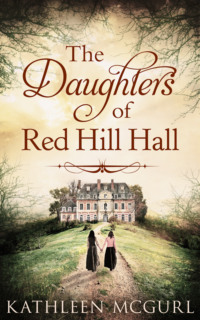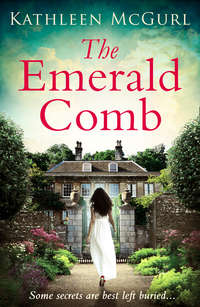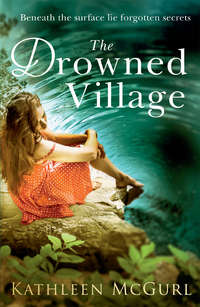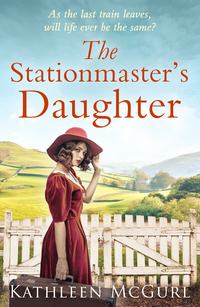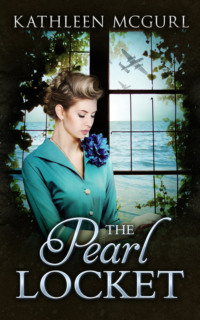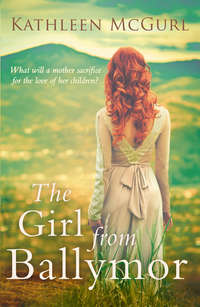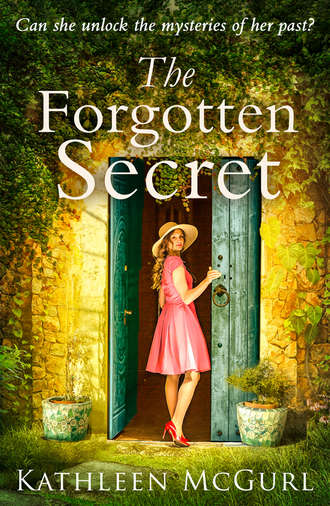
Полная версия
The Forgotten Secret: A heartbreaking and gripping historical novel for fans of Kate Morton
‘Hope you don’t mind that he told me,’ Jon said, sounding a little unsure.
‘Of course not. I know you two are close and tell each other everything.’
‘Ahem, not quite everything. He doesn’t know about my dangerous liaison with the fire-eating circus acrobat who tied my legs in knots during a three-day tantric sex session …’
‘Jon!’
‘Joking! Course he knows about that!’
You never knew with Jon, when he was being serious and when not. But he never failed to lighten the mood and make me smile. My tears were gone already.
It took a few weeks more, and a lot of soul-searching, and some long chats with Matt and Jon, before I finally came to a decision. Yes, I would do it. I would leave Paul. I would arise and go now. Perhaps I should have done it years ago, but it would be easier now – less messy as I could simply move to Ireland and leave him the UK house. I just needed to wait for probate to be completed so that the inheritance was mine, and then I could go. Oh, and I needed to tell Paul, of course. How, I wasn’t sure. I decided to wait for the right moment. Whenever that would be.
Uncle Pádraig’s solicitor, Mr Greve, called me one day, while Paul was at work and I was in the middle of going through my wardrobe, throwing out clothes I knew I’d never wear again and wouldn’t want in Ireland. I was in the habit of doing this once a year anyway, so it wouldn’t rouse Paul’s suspicions.
‘Mrs Farrell? I have good news for you. Probate is almost complete. I need your bank account details to pay the money into.’
‘Money? I thought there was just the farm in Ireland.’
‘Ah no. There’s a fair amount of money in the estate as well. Not a huge fortune mind, but enough. So I need your bank name, account number and sort code. Do you have them to hand?’
I felt a wave of panic wash over me. The only bank account I had access to was a joint account. If the money was paid into that, Paul would be able to get at it. He’d notice it immediately – he got alerts on his phone whenever there was any activity on his account – and he’d quite possibly move it out and invest it somewhere else where I couldn’t touch it. He might be my husband of twenty-five years, but I couldn’t trust him with this. It was my money.
‘Er, no. Sorry, I don’t have them right here. Can I call you back later with them?’
‘Yes of course, but the sooner the better so we can get this all neatly tied up. You have my number, I think.’
‘I do, yes.’
‘Good. I’ll wait to hear.’ Mr Greve hung up. He’d sounded vaguely irritated that I wasn’t the sort of organised woman who had bank details to hand.
I grabbed a jacket and my handbag, and rushed out of the house. Paul had the car at work, but it was only a forty-minute walk into the town centre and if I hurried I could get there, see to my business and get home again in time to cook Paul’s tea. Yes, I was the type of housewife who always had her husband’s dinner on the table when he came home from work. A throwback to the 1950s. Sometimes I despised myself for it. Though not for much longer.
There were three banks with branches in our small town, and I nipped into the first one I came across – Nationwide.
‘I need to open a bank account,’ I told the clerk, slightly breathless from my fast walk to town.
‘All right, what kind of account did you want? And do you already have any accounts with us?’ she asked.
‘Just a regular account. And no, I don’t.’
‘OK. Wait there, I’ll see if someone’s available to talk you through the options.’
I was lucky. Someone was available and I was ushered to a desk behind a partition, where a smart young man with ‘Dan’ on his name badge sat opposite me with a pile of leaflets. I was blushing with embarrassment that a woman of my age – almost 50 – did not have her own bank account, and did not know the difference between a SIPP and an ISA, a current account and a savings account. I’d had my own account before Paul, of course, but I’d closed it on his advice when I stopped working when Matt came along, and had just used our joint account for the twenty-four years since then. Dan was patient and gentle with me, but I could tell he thought I was an oddity.
‘Well, Mrs Farrell, as you’re wanting to pay in an inheritance but still have instant access to the money, I would recommend our Flexclusive Saver account. Decent interest rates yet fully flexible. We can open that now for you, if you have some proof of ID and proof of address.’
I hadn’t for a moment thought I’d need anything like that. I’d been so far removed from all this sort of thing – Paul of course handled all our finances and paid all the bills. But thankfully I had my driving licence on me, and at the bottom of my handbag was a water bill with a shopping list scribbled on the back. Dan accepted those.
Twenty minutes later I left, grinning like a cat with cream, clutching a piece of paper with my bank account numbers on it. A card would arrive by post in a couple of days, Dan said. Our post arrived around midday so I’d be able to pick it up before Paul saw it.
Back home I called Mr Greve, passed on the bank details, and made myself some tea in an attempt to calm myself down a little. I’d done it. I’d taken the first step towards independence.
Next step, tell Paul.
Chapter 4
Ellen, July 1919
Ellen set off to start work at her new job the next day with a spring in her step. She’d packed a few things in a holdall – even though Mrs Carlton’s big house was only a couple of miles away from her father’s cottage, her job was live-in as she had to be up at six to set the fires in the bedrooms, bring hot water upstairs in ewers and then fetch the mistress’s breakfast, which she always took in her room.
She was looking forward to starting the job, a new life away from her increasingly morose father. She felt a pang of guilt that he’d have to fend for himself during the week, but she’d baked two large mutton pies the previous day and stored them in the pantry, and she’d made enough soda bread for a few days, and a fruit cake, and stocked up on general groceries. He’d manage, she told herself.
And Jimmy was home. Jimmy was home! When they’d parted the day before, he’d promised to meet her this morning to walk with her as far as the gates to Carlton House. She had to pass his home, Clonamurty Farm, on her way anyway.
Sure enough, there he was, leaning against the gate post as she approached. The low morning sun was behind him, shining like a halo around his floppy blond hair. Such a contrast to her own dark curls. Ellen smiled as he greeted her and began walking alongside her.
‘So, all ready for your new job?’ he asked.
‘Yes, all ready. I’ve my things packed in this bag. They’ll give me a maid’s uniform up at the house. My room will be right up in the attic. I hope there’s a window with a view.’
‘Maybe a view back to Clonamurty, and if you’re unhappy you can signal me from the window. One lit candle means all’s well, two means come and rescue me.’ There was a mischievous glint in Jimmy’s eyes as he said this.
Ellen giggled, but a little part of her wondered whether Jimmy would really ‘rescue’ her if she was in need. It was an enticing thought. She felt herself blushing so turned her face away.
They chatted and bantered as they walked the short distance to Carlton House. Jimmy did not say anything more about his political beliefs or his desire for an independent Ireland, for which Ellen was grateful. Their time together would be all too limited now that she was working six days a week, plus cooking for her father on the seventh, and she did not want to spend time talking politics.
At the end of the long drive lined with elegant poplar trees that led up to the big house, Jimmy stopped. ‘You probably oughtn’t to be seen walking with me on your first day, so I’ll leave you here. Good luck!’
‘Will I see you on Sunday?’ Ellen asked, turning to face him. ‘It’s my day off. I’ll be at Mass, of course, and have to see Da, but …’
‘I’ll meet you here and walk you home. Then I can see you after church if you’ve time, and walk you back here in the evening. If you like.’
Her eyes shone. ‘Yes. Yes, all that would be lovely, so it would.’ Something to look forward to, all week. Six days until she’d see him again.
‘I’ll be away, then. Hope all goes well. They’ll love you, sure they will.’
He took a step towards her and for a moment she thought he was going to take her in his arms and kiss her goodbye, but he just picked a loose hair off her shoulder and then raised his hand to wave farewell.
She watched him walk back the way they’d come for a moment, then turned and began making her way up the long gravel driveway towards the big house. She’d only been there once before – the previous week when she’d attended an interview with Mrs Carlton. She’d expected to meet a housekeeper, but it was the lady of the house herself who conducted the interview. There’d been an odd question about Ellen’s family background, and she’d found herself talking about her great-grandfather who’d fought alongside Wolfe Tone in the old rebellion. Mrs Carlton had pronounced herself pleased, and asked Ellen to begin work.
And now it was time to start her new life. When she’d reached the house, she went around to the kitchen door, knocked, and was shown in by a scowling housemaid.
‘You’ll be the new maid, then,’ the girl said. It was a statement not a question. ‘I was after wanting that job upstairs. Easier than downstairs. Don’t know why the mistress didn’t give it to me.’
Maybe because you’re so grumpy, Ellen thought, but she smiled sweetly and held out her hand. ‘I’m sorry if I got the job you wanted. I hope it won’t stop us being friends. My name’s Mary-Ellen, but everyone calls me Ellen.’
‘I’m Siobhan,’ the other girl said, ‘and you’ll be sharing my bedroom.’ She did not shake Ellen’s hand.
Siobhan took her through the kitchen and along a corridor to an office, where Mrs Carlton was sitting doing the household accounts.
‘Ah, Ellen. Thank you, Siobhan. You may return to your duties. I’ll show Ellen where her bedroom is and what her tasks are to be.’
Siobhan bobbed a curtsey and left the room, but not before she’d thrown another scowl in Ellen’s direction. Ellen suppressed a sigh. She’d hoped she’d make friends here at the Hall, not enemies. And she’d be sharing a room with Siobhan. She resolved to work harder at being friendly towards the other girl. Siobhan was probably just jealous, but it wasn’t Ellen’s fault she’d got the job.
‘I really should employ a housekeeper,’ Mrs Carlton said, as she led Ellen upstairs, along a corridor and up a second flight to the attic rooms. ‘I suppose I just enjoy retaining control of the household too much. Anyway, here’s your room. That’s Siobhan’s bed, so you have this one under the window.’ She opened the door onto a small room, with a dormer window that looked out across gently rolling farmland. In the distance was a ribbon of silver – the Boyne. Ellen crossed to the window and peered out. Yes, she could just about make out a farmhouse not far from the river. Clonamurty Farm, and in it, Jimmy.
‘This is perfect, thank you, ma’am,’ she said, placing her holdall on the bed. ‘Should I change now or get straight to work?’
‘Ah, your uniform. Just a moment, I’ll call Siobhan to fetch it. Oh, and call me Madame. Not ma’am, and not Mrs. Those forms of address are just too … English, I suppose.’ She smiled. ‘Just my little idiosyncrasy.’ And then she left the room.
Ellen took the opportunity while she was alone to have a look around. Besides the two narrow beds there was a washstand, basin and ewer, a chest with four drawers, two bentwood chairs and a small mirror hanging on the wall. There was a neat little fireplace with a bucket of sweet-smelling turf to burn beside it.
A worn-out hearthrug was on the floor, and a sampler hung over the fireplace with the words ‘Many suffer so that some day all Irish people may know justice and peace –Wolfe Tone’ embroidered upon it, signed with the initials E.C. Mrs Carlton’s first name was Emily, Ellen knew. Was it Mrs, sorry, Madame Carlton herself who’d embroidered the sampler? The words were so patriotic, so Irish, and yet Madame Carlton was English – at least, she was one of the Anglo-Irish aristocracy. She was a widow, but her husband had been a Member of Parliament, spending most of his time in London.
Ellen had always thought the desire for Irish independence was something only the poor wanted and fought for: the downtrodden, those whose ancestors had perished during the Great Famine, those who had nothing to lose and everything to gain. But here was the widow of a British MP, embroidering quotes like that and hanging them in her servants’ rooms, and asking not to be called Mrs because it was too English-sounding.
She was still standing in front of the fireplace pondering this when Madame Carlton arrived back in the room, carrying a neat black dress, white apron and cap. ‘Your uniform, Ellen. I have guessed at the size, but it should be about right.’ Her gaze followed Ellen’s to the sampler. ‘And are you a patriot, my dear?’
Ellen gaped for a moment, not sure how to answer or what she was expected to say. Madame watched her for a moment and then her eyes softened. ‘I am sorry. That was wrong of me to ask such a thing on your first day, when I barely know you. Suffice to say that all here are Fenians and true Irish patriots. I would employ none other. We believe in the Cause. Irish independence must be won at all costs. I know something of your family, Ellen, and feel that you will fit in perfectly.’
She handed Ellen the uniform. ‘So, put this on, and report downstairs to me. You’ll find me in the housekeeper’s office.’
Madame Carlton left the room, closing the door behind her, to allow Ellen to get changed. She did so, quickly, her mind reviewing all that she had heard. Between Jimmy’s declaration of support for the Cause and now her employer’s, she seemed to be surrounded by people who wanted a free and independent Ireland. But her own thoughts on the matter were still unresolved.
The week passed quickly. Although she was an upstairs maid, with easier work than the downstairs and scullery maids had, she found it exhausting and crawled into bed each night aching all over. She was on her feet from six a.m., running up and down stairs, setting the fires, fetching fuel, jugs of warm water to wash, bringing breakfast trays up and clearing them away after. Later she had to make the beds, change sheets, clean bedrooms, sweep the stairs and landings, clear out grates and set the fires ready for the evening.
Besides Madame Carlton there was a succession of visitors using the many guest rooms on the first floor. Ellen rarely glimpsed the guests, and was often instructed to leave their breakfast trays outside the door. Madame seemed endlessly busy, running her household, entertaining her guests and conducting serious-looking meetings either in the library or the dining room. When these were in progress, the servants were instructed to keep well out of sight at all times. Madame herself would emerge to fetch a tray of refreshments if needed.
Siobhan had softened towards her a little, as Ellen had displayed relentless friendliness towards the other girl. She’d got the impression Siobhan was most miffed about having to share a bedroom, so Ellen had tried to be as easy-going a room-mate as possible. They’d begun chatting for a few minutes at bedtime, exchanging little stories about their work, speculating on who Madame’s latest visitors had been.
‘Something to do with the fight for independence,’ Siobhan said one night. ‘Our Madame’s really tied up in all that, you know. She’ll suck us into it as well, if we’re not careful, so.’
‘Do you want to be part of the fight?’ Ellen asked.
Siobhan was quiet, as though she was mulling over her answer. ‘Not sure. What about you?’
‘I’m not sure either,’ Ellen had whispered in reply. Even as she said the words, she wondered how she’d have answered if it had been Jimmy asking her. She knew she’d do anything for him.
At last it was Saturday evening, and Ellen was free to leave Carlton House for twenty-four hours. She’d arranged to meet Jimmy at the end of the drive, and had time to go for a walk with him before returning to her father.
She walked down the drive carrying half a ham wrapped in muslin that the cook had given her. ‘The mistress said to give it to the dogs but it’s still perfectly good, so you take it home for your daddy, now,’ the cook had said, handing it to Ellen with a smile. She had so much to tell Jimmy. Not least her growing realisation that Madame Carlton seemed to be deeply involved with the fight for independence.
Jimmy was leaning against the gate post, hands in pockets and a thoughtful expression on his face.
‘All right, Jimmy?’ Ellen said as she approached, and Jimmy hauled himself upright with a shrug.
‘Yes, sure I am. How’re you? How was your first week?’
They fell into step, walking down the lane towards Clonamurty Farm. Ellen told him of her duties, of her room-mate Siobhan and her less-than-friendly welcome, of the other staff.
‘And your mistress, Mrs Carlton? How do you get on with her?’ Jimmy asked. There was an odd tone to his voice.
‘She seems very nice,’ Ellen said, guardedly. She still wasn’t sure whether she should voice her suspicions about Mrs Carlton. Even to Jimmy.
‘Just nice?’
‘There’s something odd. She wants to be called Madame and not Mrs. I think she’s … well, I think she’s involved with the Irish Volunteers, so I do.’ There. It was out in the open. ‘Jimmy, you won’t say it to anyone, will you? I’d hate for her to get in any trouble because of me.’
To her surprise Jimmy laughed, and then flung an arm about her shoulders. ‘Ah, my sweet Ellen. Of course she is involved! She runs a branch of the Cumann na mBan. You’ve heard of that, haven’t you?’
She had. It was the Irishwomen’s Council – an auxiliary branch of the Irish Volunteers, fighting for Irish independence. ‘So you know what she does? There are always people coming and going, having meetings and all sorts.’
‘Yes, there would be. She’s quite senior in the organisation. She’s important to the Cause.’ Jimmy nodded knowledgeably.
Ellen wanted to ask how he knew so much about it, but Jimmy had withdrawn into himself again, with that serious, thoughtful expression he’d had when they met. She wanted to snatch away his hat, run off with it, have him chase her, laughing, the way they used to when they were children. But something told her it wouldn’t work now; he’d just be annoyed at her. They were adults now, and Jimmy clearly had something serious on his mind.
‘What are you thinking about?’ she asked, quietly, after they’d walked in silence for a few minutes. They weren’t far now from his parents’ farm, and he might leave her there, and they’d have no more chance to talk until after Mass tomorrow.
He smiled at her, and stopped walking. There was a wooden fence lining the road, and he pulled her over to sit with him on the top rail.
‘I’m thinking about my future. And Ireland’s future. And how the two are intertwined.’
She frowned. ‘Of course they are, since you live in Ireland.’
He shook his head. ‘I mean in a more profound way than that. I’ve made my decision, Ellen, about what I’m going to do now that I’ve left school. I’ve been thinking long and hard about it this week, and I realise now what’s the most important thing to me.’
She watched him, a little spark of hope in her heart that he would tell her the most important thing in his life was her, and that he had decided he wanted to be with her, now and always. But as soon as the thoughts crossed her mind, she dismissed them. Something in his expression, in his distant gaze across the fields, told her he cared more for something else. ‘What is it?’ she whispered, hardly wanting to hear the answer. It would change everything – she knew it.
‘Ireland, Ellen. Ireland’s future, Ireland’s freedom. Ireland’s independence. That’s it, Ellen. That’s the most important thing, the thing my heart says I must follow, no matter what. I’ve joined up. I’m a Volunteer. The Cause, Ireland’s independence, that’s what’s calling to me. I’ll be neither a lawyer nor a farmer. I’ll be a soldier for Ireland, till the day I die or the day Ireland is free, whichever comes first.’
He jumped down from the fence as he made this speech, and wheeled around to face her. She’d never heard so much passion in his voice. Tears sprung to her eyes as she realised two things simultaneously – first that she loved him with all her heart and would never love anyone else as much, and second that she was losing him.
‘Ah, Ellen, what has you crying?’ His expression was softer now, the fire in his eyes dimmer but still there, smouldering.
‘The thought of you fighting and maybe dying for the Cause. Surely it’s not worth it?’ She dashed the tears away with the back of her hand.
‘It is worth it. One man’s life is a small sacrifice to make for a country’s future. I love my country, Ellen. I have to do this. I have to fight the British. You are not to worry. I’ll be all right. I’ll do my part, but I’m young and fit, canny and clever, and I’ll not get caught and I’ll not be killed. You wait and see! You’ll be proud of me yet, and we’ll be able to tell our grandchildren that I fought for their future.’
Ellen was once again left speechless, still trying to process what she’d heard about grandchildren, when Jimmy grabbed her suddenly, pulling her off her perch on the fence. He squeezed her against him and landed a huge, passionate kiss on her lips. It wasn’t quite how she’d imagined their first kiss would be – she’d pictured a more tender moment – but it was still a kiss and it was intense.
‘Ah, Ellen,’ Jimmy said, holding her tightly and burying his face in her hair. ‘It has me all fired up. And you, my love – believe me, you mean just as much to me as Ireland does.’ He kissed her again, gently this time, his lips warm against hers, the fire within him spreading into her and with it the certain knowledge that he loved her. And she loved him, and together they would build a future.
If the Cause didn’t claim Jimmy first.
Chapter 5
Clare, April 2016
In the end I waited till probate was complete, the money was in my account and Clonamurty Farm was in my name. I didn’t mean to wait that long to tell Paul; I was just weak and couldn’t seem to find the right moment. Or the courage.
He’d had his dinner – fish pie, and a glass of Sauvignon Blanc. I’d eaten almost none of mine, having made up my mind that tonight was the night we’d have the conversation. My stomach was churning. ‘Not eating?’ he’d asked, and I’d grunted and shrugged, then forced down a mouthful or two.
I’d cleared up. He’d gone to the sitting room and put the TV on in the background while he read a magazine. Something to do with cars, I noted. Well he’d need to read up on car recommendations. ‘Our’ car was actually my car – Dad had given it to me when he gave up driving, and I was going to use it to take my stuff to Ireland.
I stood in the doorway of the sitting room, breathing deeply and summoning up the courage to speak. Paul looked up and frowned. ‘Well, either come in or go out. Don’t stand there like some kind of zombie.’
‘Sorry. I’m coming in. Just – we need to talk.’ I took a few steps forward. I could feel my heart pounding.
‘Hmm? What about?’ Paul had returned his attention to his magazine.
I took a deep breath. ‘Probate on Uncle Pádraig’s will is complete. The money’s in my bank account.’
‘Ah, right. That’s good. I’ll get online and invest it later. Got my eye on a couple of safe retail bonds.’
‘Er, no. I mean it’s in my bank account. My private one, not our joint one.’
He put down his magazine and looked at me over the top of his reading glasses. ‘You don’t have a bank account.’


